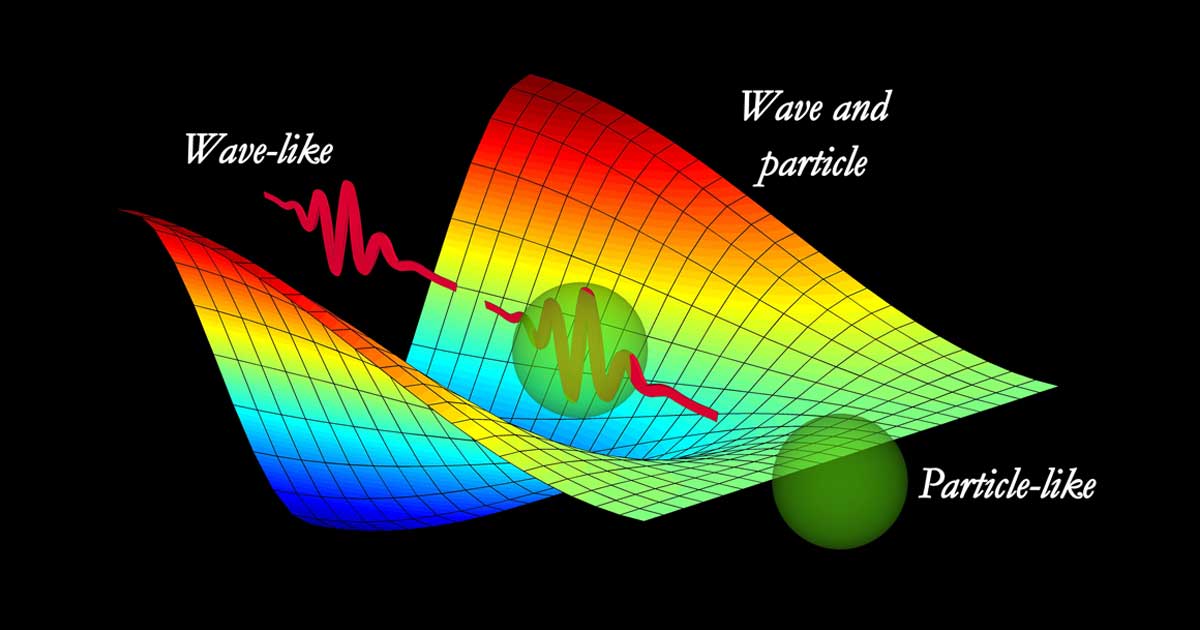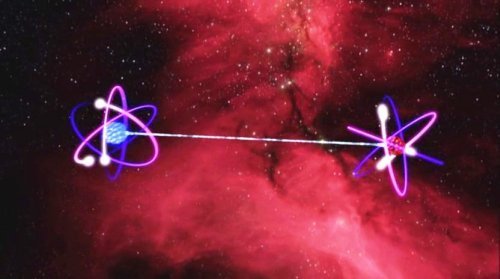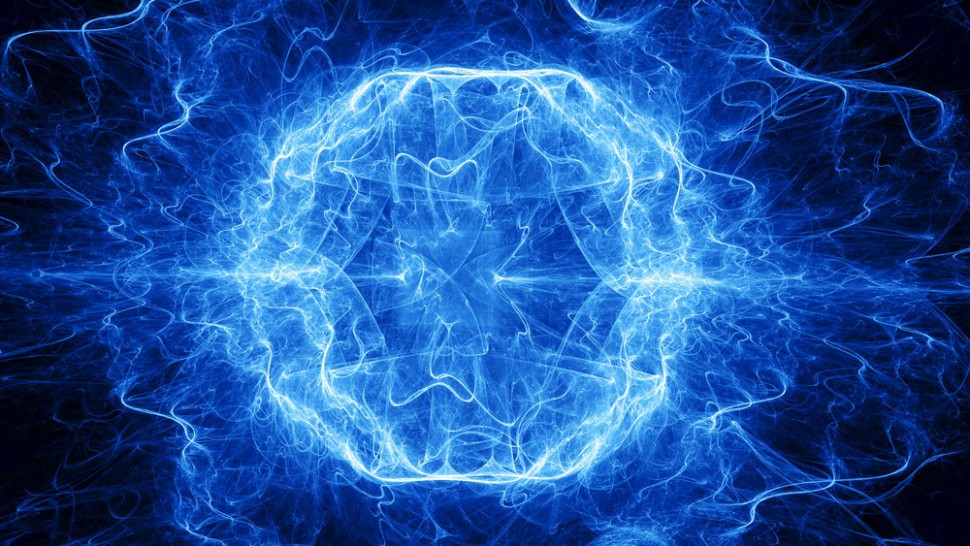A Play on Reality (Part 4 of 5: The universe as a hologram)
When we break matter down, it forms smaller solids. When we break those smaller solids down, eventually they become atoms. When we break those atoms down, they become subatomic particles. When we break those subatomic particles, we are no longer left with a solid, instead, we are left with something quite the opposite of the common traits of matter. These particles no longer have a dimension, they are not an object, instead, they are dissolved into blurry-like clouds of energy. Consequently, these waves can make interference patterns with each other, and these waves can also take various form from waves to particles (Light, gamma rays, radio waves, x-rays, etc…) (Quantum theory, 2017). These particles and waves are called quanta, and they make up the base of the universe.

One idea to an answer behind this phenomenon, by physicist Nick Herbert, suggested that quanta will only manifest as particles under observance, when we are looking at them. Due to this, an assumption, by Niels Bohr, pointed out that if sub-atomic particles only took form under observance, then it would essentially be meaningless to speak of their characteristics/properties as existing before they are actually observed. This idea conflicted with the minds of many scientists, including Albert Einstein himself, because it did not harmonize with quantum physics discoveries that depicted some subatomic processes, such as the annihilation between an electron and a positron where they both decay into quantas of light, result in the development of a pair of particles with identical or perhaps similar properties, found to be moving at the same angles of polarization, no matter how far apart the two are. However, in counteraction to that idea, the Einstein-Podolsky-Rosen Paradox was developed and explained that Bohr was incorrect because, if the idea were true, it would be traveling faster than the speed of light, which would break the barrier of time and cause unacceptable events (Fine, 2004). But Bohr had the idea that Einstein misinterpreted, that perhaps the particles were not continuously communicating with each other for the next move, but instead they were part of an indivisible system.
This interconnectedness between particles also shows through in David Bohm’s study on plasmas at the Berkeley radiation laboratory. He found that electrons didn’t behave like individual particles, but instead they acted interconnected inside of the plasma and they also produced organized overall effects rather than random movements. This was no longer just two particles “communicating” as if they knew each other, it was more like a cloud or a sea of interconnected particles, Bohm called these plasmons.
Soon after this study, Bohm and another researcher, by the name of Aharonov, at Bristol University came across another example of non local interconnectedness when finding that under the right conditions, an electron can “feel” the presence of a magnetic field that is in a zero probability range of finding an electron, this was called the Aharonov-Bohm effect (Aharonov-Bohm, n.d.).
citations:
Fine, A. (2004, May 10). The Einstein-Podolsky-Rosen Argument in Quantum Theory. Retrieved May 09, 2017, from https://plato.stanford.edu/entries/qt-epr/
Talbot, M., & McTaggart, L. (2011). The holographic universe: the revolutionary theory of reality. New York, NY: HarperPerennial.
The Aharonov-Bohm Effect. (n.d.). Retrieved May 09, 2017, from http://www.sjsu.edu/faculty/watkins/bohm.htm
The Quantum Theory of Waves and Particles. (n.d.). Retrieved May 09, 2017, from http://www.pitt.edu/~jdnorton/teaching/HPS_0410/chapters/quantum_theory_waves/index.html
Interesting post! Hard to wrap your head around some of this stuff and figure out how it applies towards improving our daily life.
This is actually part of a term paper that I wrote for a natural science class. I split it up into 5 smaller parts to make it easier on the reader. The intended prompt, however, was to convince readers to think beyond objective reality whether this holographic paradigm is actually true or not. That is why I decided to name it "A Play on Reality". Thank you for your comment by the way (: